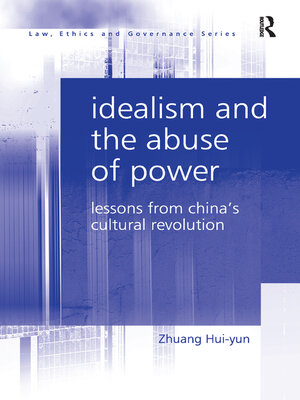Idealism and the Abuse of Power
ebook ∣ Lessons from China's Cultural Revolution · Law, Ethics and Governance
By Zhuang Hui-yun

Sign up to save your library
With an OverDrive account, you can save your favorite libraries for at-a-glance information about availability. Find out more about OverDrive accounts.
Find this title in Libby, the library reading app by OverDrive.



Search for a digital library with this title
Title found at these libraries:
| Library Name | Distance |
|---|---|
| Loading... |
This book analyses the abuse of idealism with particular reference to China's Cultural Revolution. The work examines abuse at two levels: the state leaders' metaphysical vision as the interpretation of idealism at the top with state power; and the psychological state of the masses at the bottom of society. The concept of abuse itself is discussed with the author arguing that idealism is often used to justify abuse while many are all too willing to accept this as idealism itself. On the other hand, many dismiss the idealist vision because of the horrible consequences of the abuse. For these reasons, the book holds that abuse of idealism should not be confused with the original intent of idealism. It is further argued that the masses often complement dictatorship due to a basic weakness of human nature. Finally, the book proposes that the concepts of human dignity and equal access to truth are prerequisites for the effective rule of law within China.







